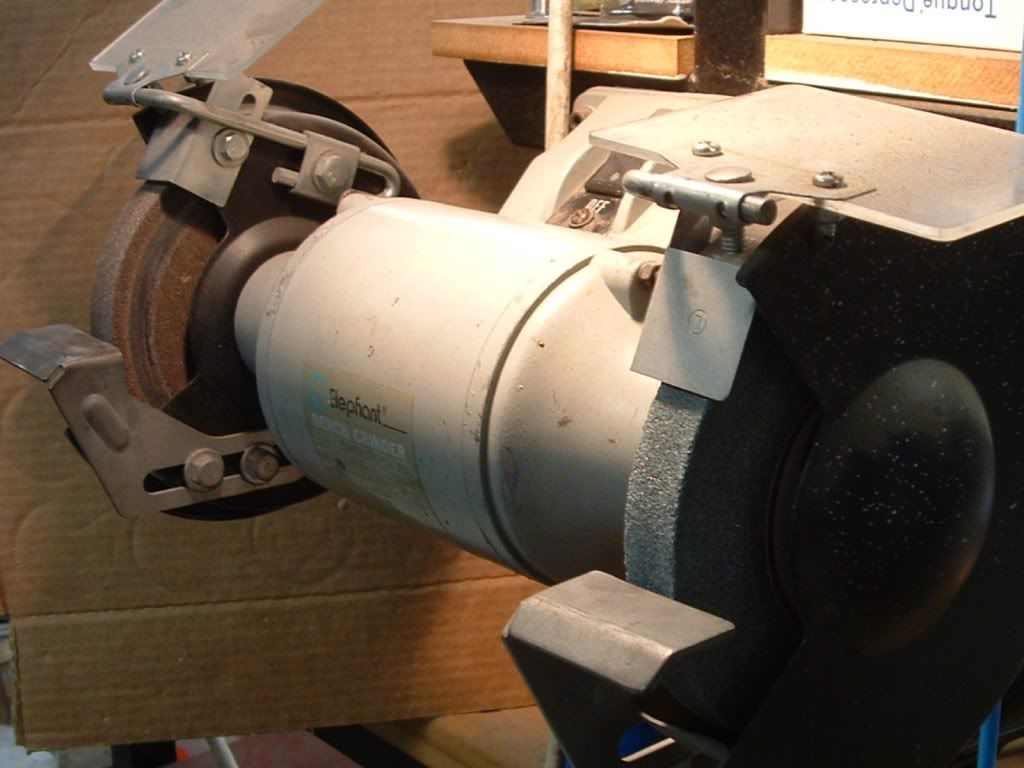When I faced the decision of buying a bench grinder recently, I was warned about the tool rests. Most inexpensive grinders have flimsy tool rests made if little more than bent sheer metal. If you have a mill, you can tool up some new rests, or you can spend a little more for a grinder with good, solid rests.
My eventual choice was a 6" DeWalt brand grinder, it has cast aluminum tool rests and a stronger motor than most other 6" grubbers. It cost me $100, but I consider it money well spent. I will always stand by DeWalt products, have never been let down by them. Designed for contractors and heavy users, they are a little more expensive, but usually have a sturdier build, powerful motor, and careful attention to mix between form and function.
Not a dewalt salesman or affiliate, just a very satisfied user.
-Ryan





